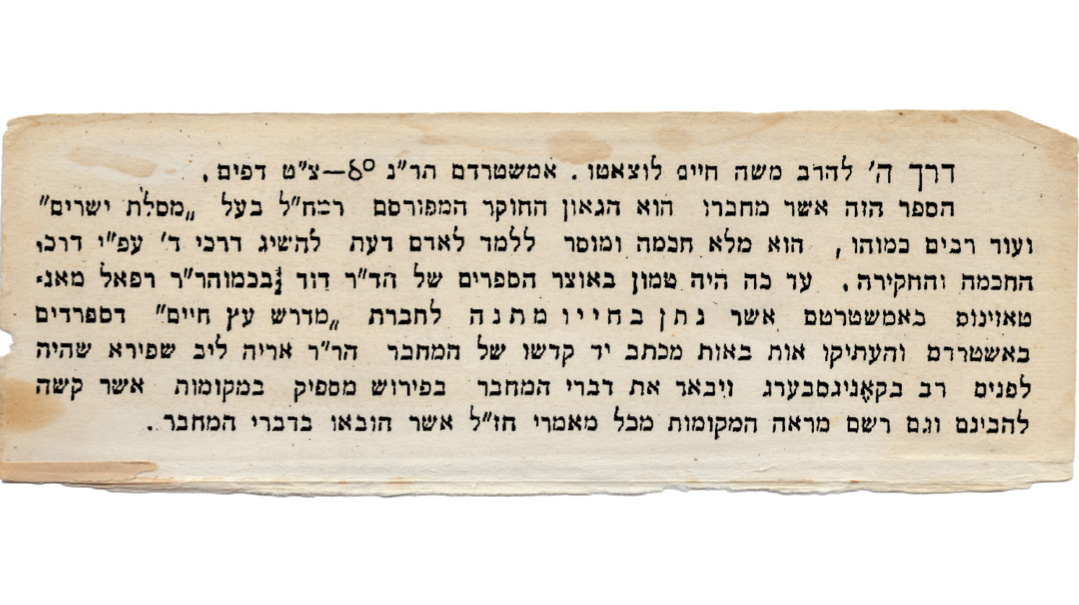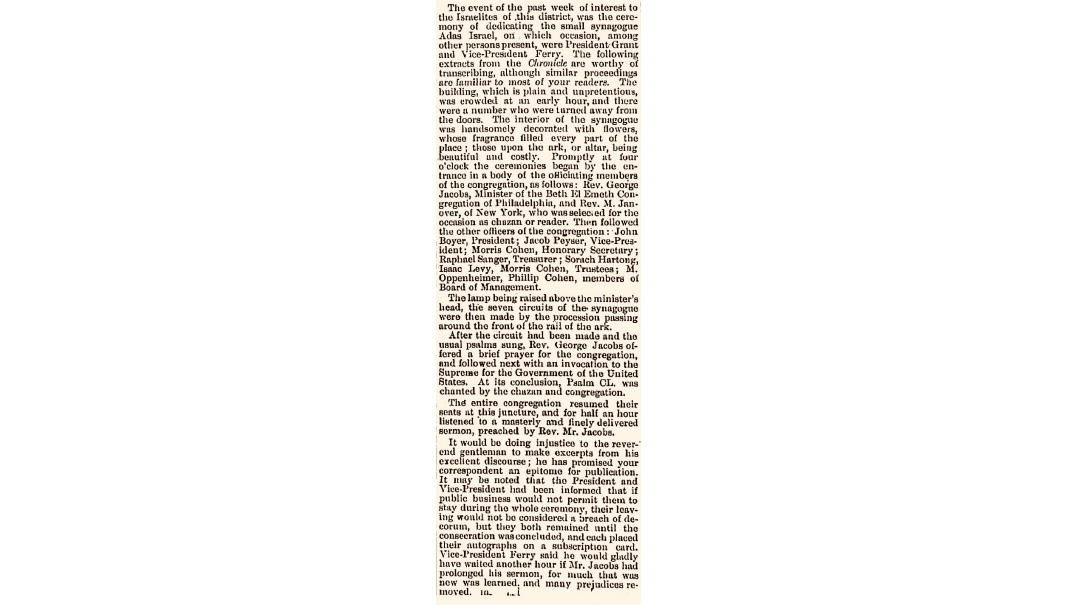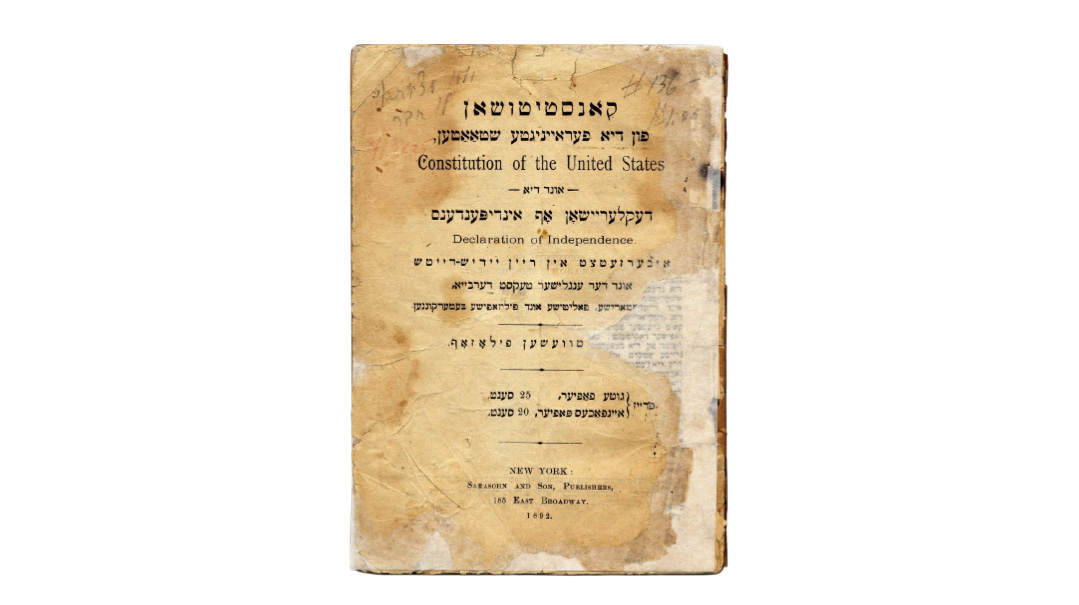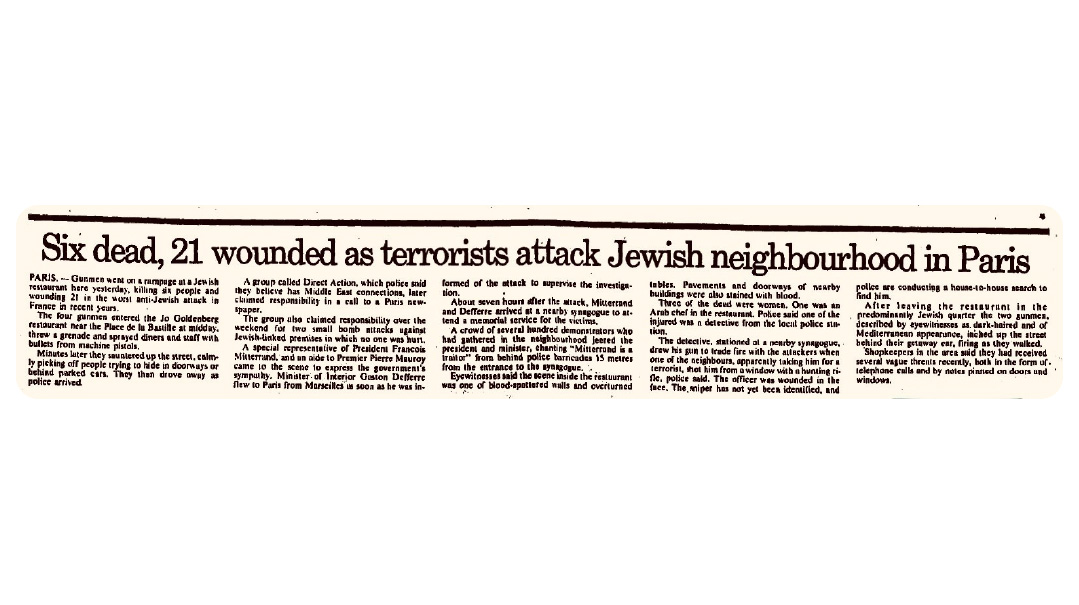Draining the Swamp
| November 9, 2021Though the city of Chadera eventually developed a secular character, in the 1960s a branch of the Novardok yeshivah opened in Chadera

Title: Draining the Swamp
Location: Chadera, Ottoman Palestine
Document: Passport of Rav Moshe Mordechai Epstein
Time: 1890
The late 19th century was a time of rising disillusionment for Jews in the Russian Empire. Drastic economic changes and rising anti-Semitism in the 1870s, followed by the 1881 pogroms in Ukraine after the assassination of Czar Alexander II, led many to emigrate. Although the vast majority who did so crossed the Atlantic Ocean, a few adventurous individuals headed south to Ottoman Palestine, with the goal of establishing settlements in Eretz Yisrael. One who shared that vision was the soon-to-be rosh yeshivah of Slabodka, Rav Moshe Mordechai Epstein.
The upheavals did not spare the Volozhin Yeshivah, and some of its students established secret societies to promote settlement in the Land of Israel, operating clandestinely to avoid discovery by the Czarist police. In addition, the rosh yeshivah, the Netziv, frowned upon distractions from Torah learning.
Rav Moshe Mordechai and Rav Isser Zalman were among the members of two societies in Volozhin, Nes Tziona and later Netzach Yisrael. They deepened their association when they both married daughters of the late Rav Shraga Feivel Frank of the Kovno suburb of Alexut (Aleksotas). The wealthy and influential Frank family were leading members in the local branch of the Chovevei Zion movement.
In 1890 Rav Moshe Mordechai and three others were dispatched as emissaries of Chovevei Zion to Eretz Yisrael to purchase a parcel of land in the Jezreel Valley for future settlement. Zionist activist Yehoshua Chenkin brokered the deal, which resulted in the acquisition of a tract of swampland, inhabited by a handful of water buffaloes, from the Arab Christian Selim Khuri.
Chenkin had promised the Chovevei Zion delegation that he would have the swamps drained, but he reneged on this obligation and seized their down payment and the deeds to the property. Rav Moshe Mordechai was forced into protracted negotiations before finally obtaining control of the land. The colony was named Chadera, and the city to this very day commemorates Rav Epstein’s role in its founding with a photo display in the municipal offices showing him and his fellow delegates adorned with Ottoman tarbushes on their 1890 trip.
Rav Yehuda Leib Frank continued his family’s involvement with Chadera with his arrival from Kovno in 1893, serving as the first rav and administrator of the colony. The marshes were a breeding ground for yellow fever, and his wife Malka succumbed to the disease in 1905. He eventually moved to the Chatzer Strauss complex in Jerusalem’s Musrara neighborhood, where members of the mussar movement resided. His son Rav Tzvi Pesach Frank would eventually become rav of Yerushalayim.
Rav Moshe Mordechai Epstein had purchased a piece of property for himself in Chadera, but his appointment as rosh yeshivah of Slabodka in 1894 precluded his settling there. In 1925 he returned to Eretz Yisrael, this time together with his yeshivah, when they settled in Chevron.
Each Stamp Tells a Story
Few roshei yeshivah put their passports to use like Rav Moshe Mordechai. He traveled three times to Palestine, and then twice to America and all over Western Europe, raising funds for Slabodka Yeshivah.
Torah Returns to Chadera
Though the city of Chadera eventually developed a secular character, in the 1960s a branch of the Novardok yeshivah opened in Chadera headed by Rav Yaakov Galinsky. When it folded, it was followed by a branch of ITRI Yeshivah headed by Rav Tzvi Kushlelevsky in the 1970s. Finally, Yeshivah Knesses Yitzchak was launched in Chadera in 1989.
Together, Forever
In 1925 Rav Isser Zalman Meltzer also moved to Eretz Yisrael, where he was appointed rosh yeshivah of Etz Chaim. In 1929, Rav Isser Zalman visited Poland to participate in the dedication of the Kletzk yeshivah building. After delivering a series of shiurim on a visit to Radin, the bochurim begged him to serve as their rosh yeshivah in place of Rav Naftali Trop, who had passed away several months earlier. His mind set on living out his days in the Holy Land, Rav Isser Zalman turned down their pleas and returned home.
The 10th of Kislev marks the yahrtzeit of both Rav Moshe Mordechai Epstein and Rav Isser Zalman Meltzer.
(Originally featured in Mishpacha, Issue 885)
Oops! We could not locate your form.






